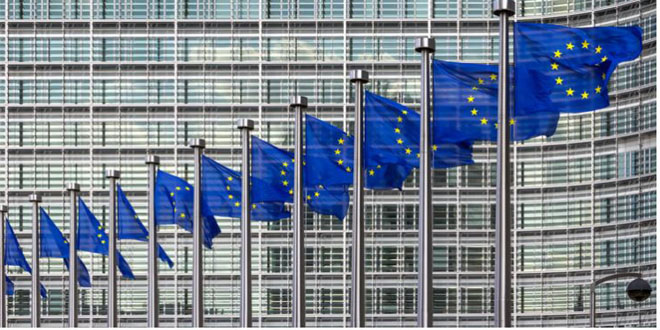A new draft of European Union legislation proposes that developers of artificial intelligence (AI) tools like ChatGPT must disclose copyrighted material used in building their systems.
Members of the European Parliament have reached a preliminary agreement on the EU’s AI Act, with new provisions added that will require generative AI developers to disclose copyrighted materials used to build their models.
By infosecbulletin
/ Friday , May 9 2025
Microsoft has fixed critical vulnerabilities in its core cloud services, including Azure Automation, Azure Storage, Azure DevOps, and Microsoft Power...
Read More
By infosecbulletin
/ Thursday , May 8 2025
The cyber threat landscape is rapidly changing, with a notable increase in ransomware activity in April 2025, driven by the...
Read More
By infosecbulletin
/ Thursday , May 8 2025
SonicWall has released patches for three security flaws in SMA 100 Secure Mobile Access appliances that could allow remote code...
Read More
By infosecbulletin
/ Thursday , May 8 2025
From April 2024 to April 2025, Flashpoint analysts noted that the financial sector was a major target for threat actors,...
Read More
By infosecbulletin
/ Thursday , May 8 2025
Cisco has issued a security advisory for a critical vulnerability in its IOS XE Software for Wireless LAN Controllers (WLCs)....
Read More
By infosecbulletin
/ Wednesday , May 7 2025
Attackers linked to the Play ransomware operation deployed a zero-day privilege escalation exploit during an attempted attack against an organization...
Read More
By infosecbulletin
/ Wednesday , May 7 2025
Hackers are exploiting an unauthenticated remote code execution vulnerability in the Samsung MagicINFO 9 Server to take control of devices...
Read More
By infosecbulletin
/ Tuesday , May 6 2025
CISA added the Langflow vulnerability, CVE-2025-3248 (CVSS score 9.8), to its Known Exploited Vulnerabilities catalog. Langflow is a popular tool...
Read More
By infosecbulletin
/ Tuesday , May 6 2025
Google has released its monthly Android security updates, addressing 46 vulnerabilities, including one that has been actively exploited. CVE-2025-27363 (CVSS...
Read More
By infosecbulletin
/ Tuesday , May 6 2025
The Cyber Security Club, representing the Department of Computer Science and Engineering at the University of Asia Pacific (UAP), has...
Read More
This requirement could provide publishers and content creators with a means to seek profit shares when their work is used for AI-generated content. The EU bill leads the global push for AI regulation and is expected to be finalized and passed later this year.
Generative AI models are trained on billions of existing works to create content and have caused ire among content creators, who say they should be compensated.
EU legislators considered outright banning the use of copyrighted material in AI models but instead agreed on a transparency requirement, which has been praised as a compromise that regulates AI without stifling innovation.
The EU started drafting its AI Act in 2021 and focused initially on the use of artificially intelligent tools, classifying them according to the perceived level of risk they pose, from low to unacceptable. The strictest rules are reserved for the most high-risk applications, such as biometric surveillance or spreading misinformation.
The focus shifted to generative AI in the wake of the viral success of OpenAI’s ChatGPT, released in November.
Italy temporarily banned ChatGPT on privacy grounds, and governments, including the US, the UK, and China, are exploring AI regulation, with rules made in the EU capital Brussels often setting legal precedents worldwide.
 InfoSecBulletin Cybersecurity for mankind
InfoSecBulletin Cybersecurity for mankind















